Hassell and Draisci Studio create "London's first sleeperie" to encourage daytime naps
London Festival of Architecture 2015: visitors to this London "sleeperie" can take a 10-minute nap in a colourful sling within a dimly-lit room, where soothing music is played and all technology is banned (+ slideshow).
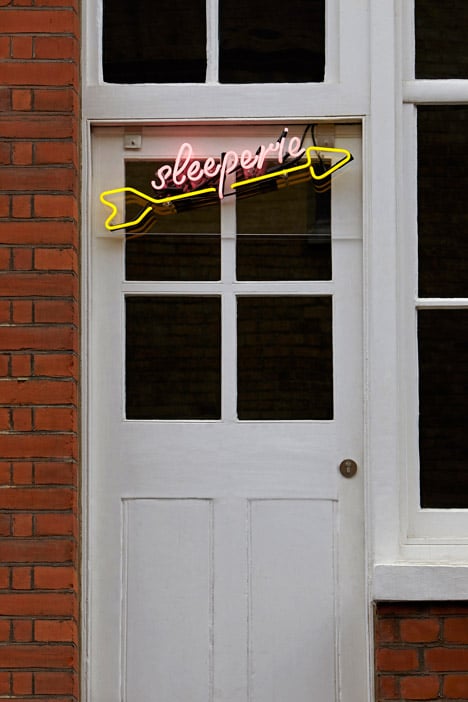
London showroom Sto Werkstatt invited architecture offices Hassell and Draisci Studio to create an interactive exhibition exploring types of architectural spaces that can be used for short-term physical and mental rest.
Called Hypnos: The Architecture of Sleep, the installation has been dubbed "London's first sleeperie". It encourages visitors to switch off mobile phones, tablets and laptops, and enjoy a quick daytime nap.
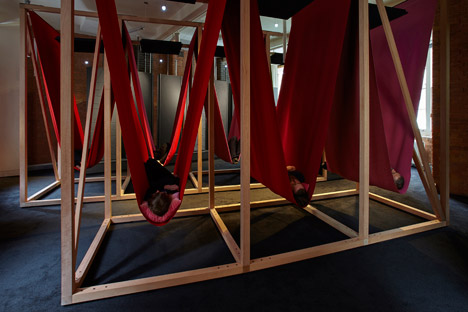
According to the architects, technology's invasion of the bedroom has disrupted many people's sleeping patterns and has prevented them from being able to fully relax.
"The design world, but architecture in particular, is famed for its late nights and sleep deprivation, but with an increase in mobile technology it has become even easier for us to keep powering through," said Julian Gitsham, practice leader at Hassell.
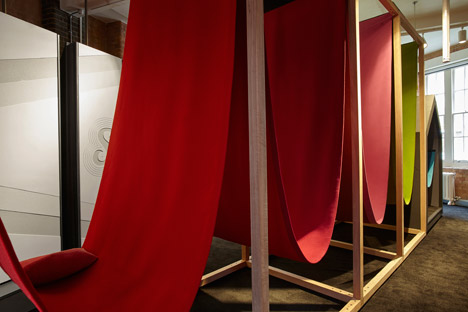
"On the other side, as designers we are being asked to respond to this shift in sleep patterns and working practices by designing sleeping pods in work places or airports," he added. "It's a change in behaviour which neither us as practitioners, nor our clients, can ignore."
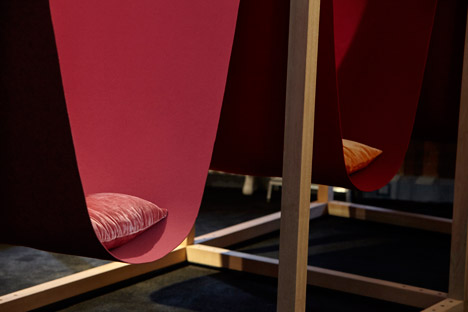
For the exhibition, the architects created rows of individual sleeping slings by draping swathes of deep-red felt over a wooden framework. Each hammock-like sling is furnished with its own plush cushion.
Visitors can book in to the acoustically insulated room – dubbed the Sleeperie – for a 10-minute nap after work or between meetings.
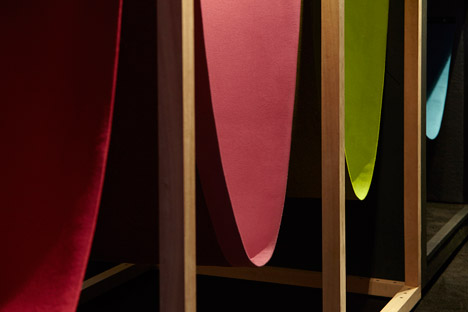
The architects imagine that "sleeping parlours" may become a reality in cities of the future and created the room using Sto Worksatt's acoustic panels to dampen external noise as a foray into this type of environment.
"Sleep is mysterious. It cannot be avoided, only delayed," said Francesco Draisci, director of Draisci Studio. "Will the lack of night sleep for many create a future generation of day-nappers? We have collaboratively investigated these ideas to create a narrative environment that will address future sleeping concerns."
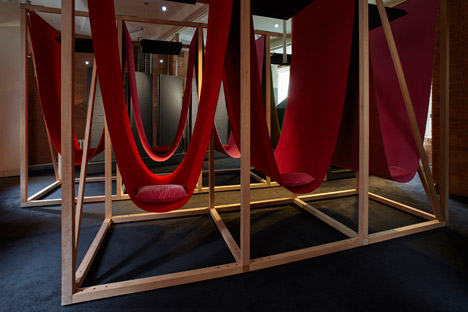
The exhibition was co-curated by Amy Croft from Sto Werkstatt and Anna Rank from Hassell. It opened at Sto Werkstatt during Clerkenwell Design Week and will continue until 30 June, coinciding with the London Festival of Architecture.
It the latest in a series of installation exploring the relationship between sleep and architecture. At last year's Istanbul Design Biennial, Jürgen Mayer H created a sleep room filled with glowing pink light and ambient pink noise, while architecture students have recently developed a conceptual "levitation suit" that allows guests to experience 3D sleeping.
Project credits:
Exhibition concept: Sto Werkstatt, Hassell, Draisci Studio
Project team: Tiago Arieira, Kam Dhiman, Francesco Draisci, Giulia Carlicchi, Katerina Karachaliou, Rosalba Napolitano, Antoine Pascal
Fabrication: Clockwork Scenery, Camina Fabrics (lamination process)
Technical assistance: Sto Ltd – Russell Cooper and Glenn Philips